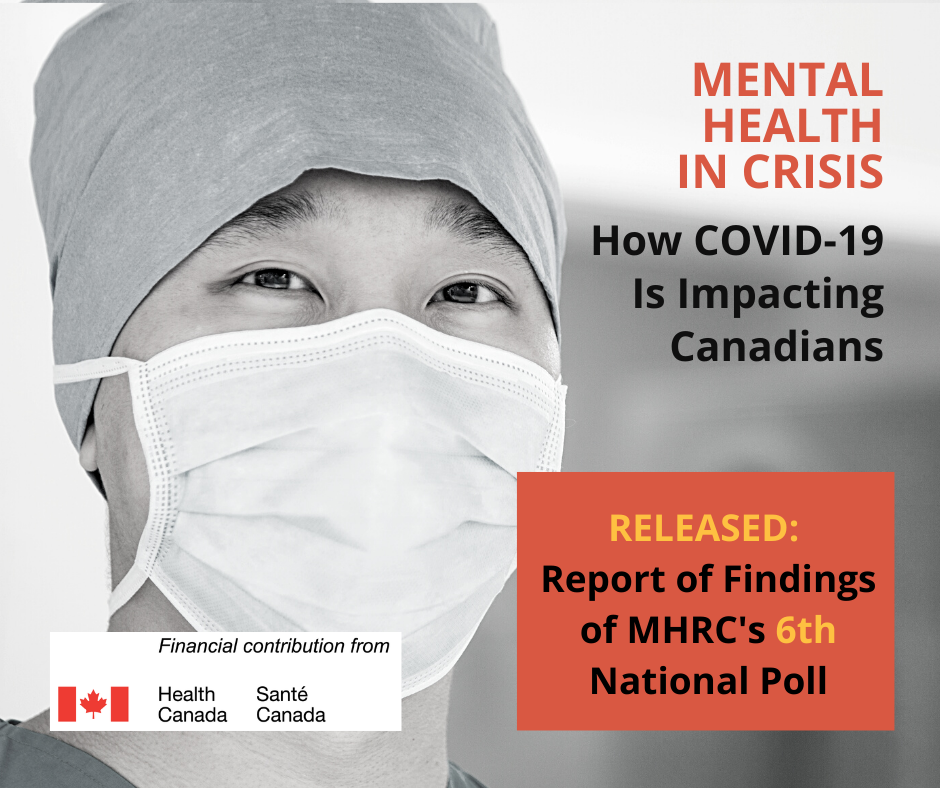Findings of Poll #6
Access the Abridged Report and Full Report of the findings of our sixth national poll
Access our in-depth webinar discussing the findings and answering questions about our sixth national poll
One-third of Canadians report their mental health is affecting their ability to function, with social and family life being the hardest hit
Of these Canadians still in school or in the workforce, 8% noted losing school or work days to mental health and 30% noted their productivity is significantly impaired.
These are some of the key findings of MHRC’s sixth poll in our ongoing series of polls on “Mental Health in Crisis: How COVID-19 Is Impacting Canadians.” The poll captures Canadians’ perceptions of their levels of anxiety and depression in order to identify and evaluate the factors that influence mental health.
On the positive side, two-thirds (69%) of Canadians indicate a high degree of resiliency, which suggests a belief in a robust mental health recovery post-pandemic and a level of optimism. When looking ahead two months, even Canadians with high levels of anxiety expect their mental health to improve (28% to 18%), which suggests the vaccine efforts, reduced lockdowns and start of summer will improve mental health. Depression levels are expected to remain steady.
Other major findings of MHRC’s study include:
Self-rated anxiety continues to rise, with 28% of Canadians reporting high levels of anxiety and 17% reporting high levels of depression. This is driven primarily by an increase in Ontario, where 1 in 3 (33%) Ontarians reports high levels of anxiety and 1 in 5 (21%) reports high levels of depression.
Specific groups and demographics continue to show the highest rates of self-rated anxiety and depression, including younger Canadians, those with young children at home, those living alone or with roommates, and frontline healthcare workers.
Going outside (walking and hiking) continues to be the most positive thing you can do to support your mental health.
The number of Canadians accessing mental health services is increasing, with 11% accessing services in the year before the onset of the pandemic, compared to 18% who accessed in the year that COVID began.
Data for our seventh poll will be collected in the first to second week of June.
ABOUT THE STUDY
The poll was conducted by Pollara Strategic Insights from April 20 to April 28, 2021. A total of 4,005 adult Canadians were surveyed online, including an oversample of 500 surveys with residents of New Brunswick and an oversample of 500 surveys with residents of Newfoundland.
Results of earlier polls are compared when applicable. Results from a probability sample of this size could be considered accurate to within ±2.2 percentage points; they are weighted based on age, gender and region to be representative of the Canadian population.
Findings from Polls 2 to 5 are searchable on our free Data Portal — and the findings of Poll 6 are in the process of being integrated.

